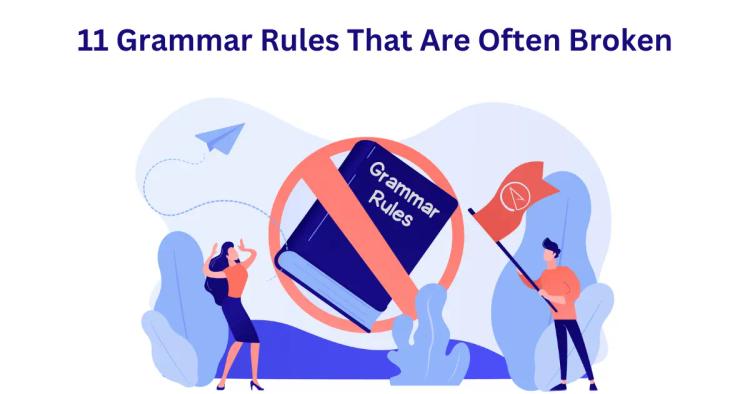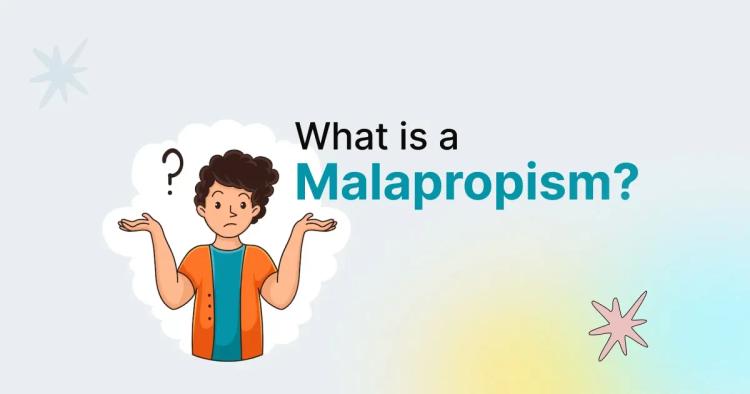Indefinite pronouns, the unsung heroes of language, quietly shape the way we communicate, adding nuance and versatility to our sentences. In the vast landscape of the English language, they stand as linguistic chameleons, allowing us to refer to people, things, or ideas without revealing their true identity.
As we embark on this journey to understand and master indefinite pronouns, we open the door to a realm of expression where ambiguity meets clarity, where variety enhances eloquence, and where the subtleties of subject-verb agreement come to life.
Indefinite pronouns, in their simplicity, empower us to craft sentences that are as enigmatic as they are illuminating. They offer a pathway to elegance in language by breaking the monotony of repetition.
Moreover, They hold the key to subject-verb agreement, a fundamental pillar that upholds the structure of our sentences. So, join us as we embark on a journey through the intricacies and artistry of indefinite pronouns, and discover how they can transform your writing from mundane to magnificent.
Why Are They Important?
Understanding and using indefinite pronouns correctly is crucial for several reasons:
-
Variety and Eloquence: They offer a means to vary sentence structures and avoid repetitive language. Instead of saying "everyone" repeatedly, you can use "everyone," "some," "many," or other indefinite pronouns to add variety to your writing.
-
Clarity and Vagueness: They help maintain clarity when you want to keep the identity of the subject or object vague. For instance, "Someone left a gift for you" does not specify who that "someone" is, adding an element of intrigue or mystery to the sentence.
-
Subject-Verb Agreement: Mastering indefinite pronouns is essential for subject-verb agreement, a cornerstone of grammatical correctness. Using the wrong verb form can lead to misunderstandings and errors in your writing.
Types of Indefinite Pronouns

Singular Indefinite Pronouns
Singular indefinite pronouns refer to a single, unspecified person, thing, or concept. Common examples include "anyone," "someone," "anything," and "everything." These pronouns are used when you want to emphasize singularity or vagueness.
- Example: "Anyone can learn to play the guitar if they practice diligently."
Plural Indefinite Pronouns
Plural indefinite pronouns refer to multiple, unspecified people, things, or concepts. Examples include "several," "many," "few," and "both." They are employed to convey a sense of quantity without specifying exactly how many.
- Example: "Many of the students have already submitted their assignments."
Singular or Plural Indefinite Pronouns
Some indefinite pronouns can be either singular or plural, depending on the context. For instance, "all," "some," and "none" can refer to either one or multiple entities, making them versatile tools in your writing.
- Example (Singular): "All is forgiven."
- Example (Plural): "All are welcome."
Examples of Each Type
- Singular: "Everyone deserves a chance to succeed."
- Plural: "Many of the students have already submitted their assignments."
- Singular or Plural: "All is forgiven." (Singular: forgiving one thing) / "All are welcome." (Plural: welcoming many)
Using Indefinite Pronouns Correctly
Subject-Verb Agreement
One of the most critical aspects of using indefinite pronouns correctly is ensuring subject-verb agreement. This means that the verb used in the sentence must match the number (singular or plural) of the indefinite pronoun.
- Incorrect: "Everyone are happy, aren't they?"
- Correct: "Everyone is happy, aren't they?"
Ambiguity and Clarity
Indefinite pronouns can introduce ambiguity if not used carefully. To maintain clarity, always ensure that it's clear what the pronoun is referring to.
- Ambiguous: "Both of the books were interesting, but one was confusing."
- Clear: "Both of the books were interesting, but one of them was confusing."
Common Mistakes to Avoid
Double Negatives: Avoid using double negatives with indefinite pronouns, as they can create confusion.
- Incorrect: "I don't want no trouble."
- Correct: "I don't want any trouble."
Mixing Singular and Plural: Be consistent with your use of singular and plural verbs when an indefinite pronoun can be both.
- Incorrect: "Some of the cake has disappeared, and the rest are untouched."
- Correct: "Some of the cake has disappeared, and the rest is untouched."
Examples of Sentences with Indefinite Pronouns
To solidify your understanding of indefinite pronouns, let's work through some practice sentences:
- "Nobody knows the secret recipe except __________."
- "Many have tried, but _________ have succeeded."
- "Is there __________ who can help us?"
The Importance of Grammar Checking

Why Grammar Matters in Writing
Effective communication relies on proper grammar. Without it, your writing can become confusing, and your message may not be conveyed as intended. Grammar is the foundation of language, and it's essential for clarity, coherence, and precision in your writing.
Benefits of Using Grammar Checkers
Grammar checkers, such as Copychecker, offer valuable assistance in enhancing your writing. They can:
- Detect and correct grammatical errors.
- Improve sentence structure and readability.
- Suggest synonyms and vocabulary enhancements.
- Enhance punctuation and style consistency.
Introduction to Copychecker Grammar Checker
Overview of Copychecker
Copychecker is an online grammar checker tool designed to help writers, students, and professionals improve the quality of their written work. Whether you're crafting an essay, email, or blog post, Copychecker can be your reliable companion.
No Login or Signup Required
One of the standout features of Copychecker is its accessibility. You can start using it right away, without the hassle of creating an account or logging in. This user-friendly approach makes it convenient for anyone looking to enhance their writing.
Using Copychecker for Indefinite Pronoun Checks

Step-by-Step Guide to Checking Indefinite Pronouns
- Open Copychecker: Visit the Copychecker website, and you'll be greeted with a simple and intuitive interface.
- Paste Your Text: Copy and paste the text you want to check into the provided text box.
- Click "Check Text": Hit the "Check Text" button, and Copychecker will swiftly analyze your content.
- Review Suggestions: Copychecker will highlight potential issues, including any involving indefinite pronouns. Click on the suggestions to see detailed explanations and recommended corrections.
How Copychecker Can Improve Your Writing
Copychecker goes beyond simple grammar checking. It provides insights into sentence structure, vocabulary, and readability. By using this tool, you can enhance the overall quality of your writing, making it more polished and professional.
Real-Life Examples of Copychecker in Action
To illustrate how Copychecker can assist with indefinite pronoun usage, let's consider an example:
- Original Sentence: "Few knows the truth behind the legend."
- Copychecker Suggestion: "Few know the truth behind the legend."
Additional Proofreading Tips
Beyond Indefinite Pronouns: What Else to Check
While indefinite pronouns are crucial, effective proofreading involves more than just checking them. Be thorough in your review by looking for:
- Spelling errors: Use spell-check features to catch typos.
- Punctuation: Ensure proper comma usage, periods, and other punctuation marks.
- Sentence structure: Check for run-on sentences and sentence fragments.
- Consistency: Maintain consistent tense, style, and formatting throughout your document.
Proofreading Strategies for Error-Free Writing
- Take breaks: Step away from your writing and return to it later for a fresh perspective.
- Read aloud: Hearing your words can help identify awkward phrasing and errors.
- Seek feedback: Share your work with others to gain different insights.
FAQs
What are indefinite pronouns?
Indefinite pronouns are words that replace nouns in a sentence without specifying a particular person, thing, or amount. They are used to make sentences less repetitive and more versatile.
When do indefinite pronouns require a singular verb?
Indefinite pronouns typically require a singular verb when they are used as the subject of a sentence. For example, "Everyone is here" or "Nobody wants to miss out."
How to memorize indefinite pronouns?
Memorizing indefinite pronouns can be made easier by creating a mnemonic device or using flashcards. Practicing with example sentences can also help reinforce your understanding.
What are some common examples of singular indefinite pronouns?
Common examples of singular indefinite pronouns include "everyone," "someone," "anybody," "everything," and "nobody."
Can indefinite pronouns be both singular and plural in the same sentence?
No, indefinite pronouns typically maintain either a singular or plural form within a sentence, depending on their context. Mixing singular and plural forms in the same sentence can lead to grammatical errors and confusion.
Conclusion
Indefinite pronouns are versatile linguistic tools that help us convey meaning with flexibility and precision. They can add depth to your writing, provided you use them correctly, ensuring subject-verb agreement and maintaining clarity.
In your journey to become a proficient writer, tools like Copychecker can be invaluable companions. They not only help you navigate the intricacies of grammar but also elevate the overall quality of your writing. Remember, the key to mastery is practice and a commitment to continuous improvement. Happy writing!




